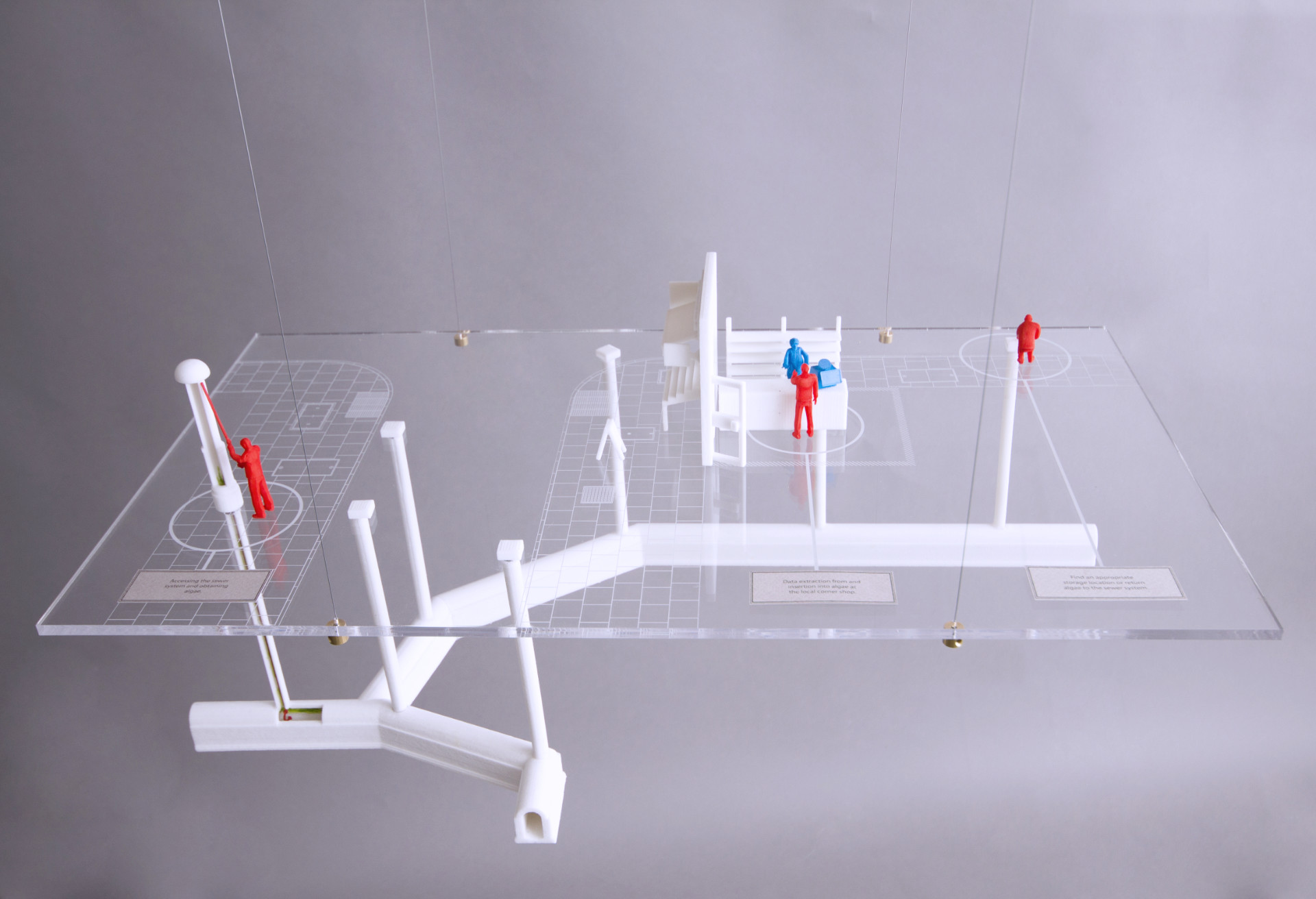Sewer Cloud
The Sewer Cloud is a living, self-reproducing data network in the sewerage system of London. This living network is based on the insertion and extraction of data into the algae species Anabaena bacteria, which lives in water.
The insertion of data into the DNA is developed (amongst other reasons) to solve the problem of data storage. 1 gram of DNA is capable of storing up to 700 terabytes of data. This scientific development could provide alternative uses and novel ways of exposure of data.

- A: Gain access to the sewer system and fetch algae.
- B: Extract data from algae and insert data into algae in local corner shops.
- C: Find an appropriate storage location or return algae to the sewer system.

The Sewer Cloud project explores the possibilities of this discovery and how people in urban areas could use it.
Corner shops would be providing machines where the extractions and insertions would take place. Stench pipes provide access points to the sewerage System. The data insertion and extraction out of algae could be regarded as a ‘grey area’ act; it would be legal to do so, but a lot of content that one could find in this network could be illegal.
The Sewer Cloud was on display at Royal College of Art Show 2013 and the AND Festival Liverpool 2013.
The Sewer Cloud is part of the Post Cyberwar series, that proposes three appropriate methods to prepare for the time after a cyberwar:
- OpenPositioningSystem (Navigation)
- Social Teletext Network (Data streaming)
- Sewer Cloud (Data storage)

Background
An Internet kill switch is a countermeasure against cybercrime; it is based on the concept of activating a single shutting-off mechanism for all Internet traffic. The theory behind a kill switch is the creation of a single point of control managed by one authority in order to shut down the Internet to protect it from unspecified assailants. The prospect of cyber warfare over the 2000s prompted US officials to draft special legislation for the Internet, but the implications of actually “killing” the Internet has spurred worldwide criticism. During the Arab Spring in Tunisia, Egypt, and Libya, access to the Internet was restricted in an effort to limit online peer networking that would facilitate self-organization. Despite the controversial effects of shutting off access to information, the activation of a kill switch remains an issue to be resolved.
Credits
Production Assistant: Marcel Helmer
Booklet Design: Henrik Nieratschker